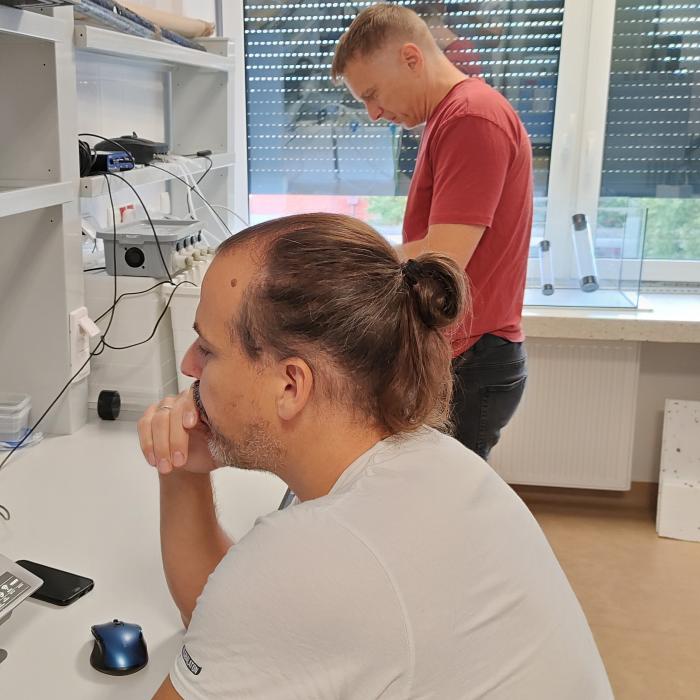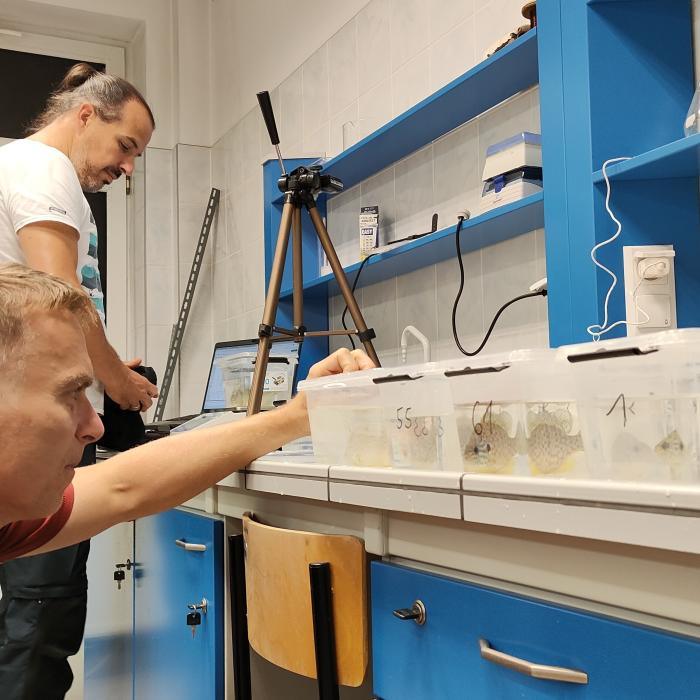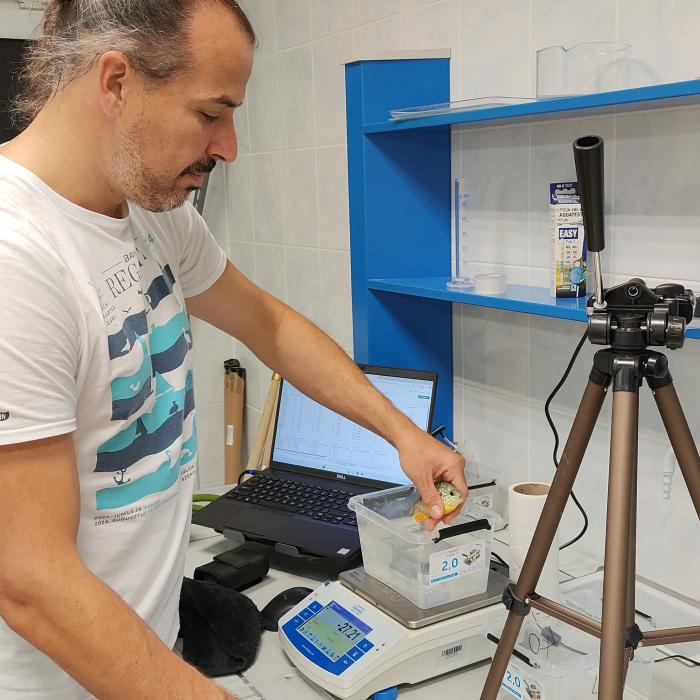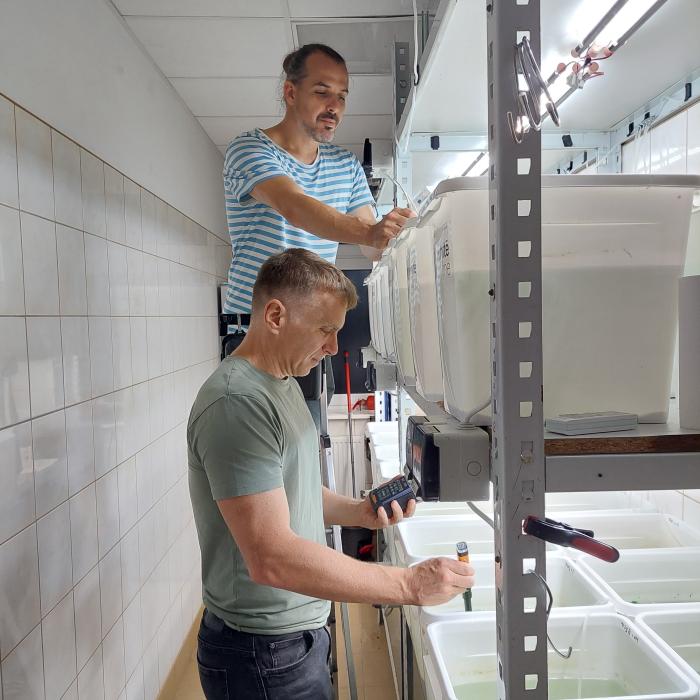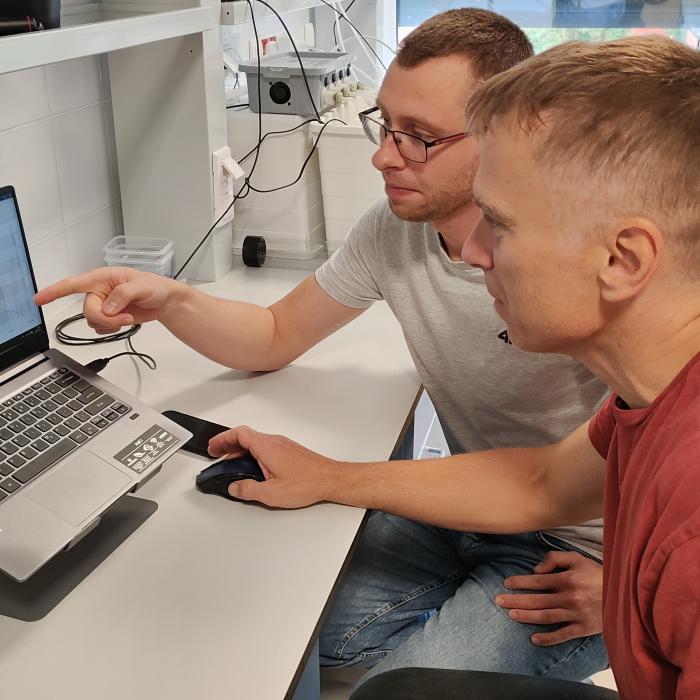Researchers from the HUN-REN Balaton Limnological Research Institute (BLRI) and Nicolaus Copernicus University in Poland are collaborating to study the effects of light pollution, resulting from increasing urbanization, on fish behavior.
In the ongoing laboratory experiments, populations of invasive pumpkinseed (Lepomis gibbosus) and native perch (Perca fluviatilis) are being analyzed, with special attention to feeding and growth patterns.
The scientists aim to determine whether artificial light affects the feeding and energy utilization of fish, and to identify differences between invasive and native species in their responses to light pollution.
The project’s goal is to gain a better understanding of how urbanization influences ecological competitive advantages and how we can help preserve the ecological balance of natural waters.
In the frame of the collaboration, BLRI colleagues Tibor Erős and Bálint Preiszner participated in laboratory work at Nicolaus Copernicus University in September, as well as in the planning of further joint research.
International scientific collaborations promote knowledge exchange, sharing of research results, and joint efforts to address ecological challenges, thereby contributing to a sustainable future and the protection of biodiversity.




